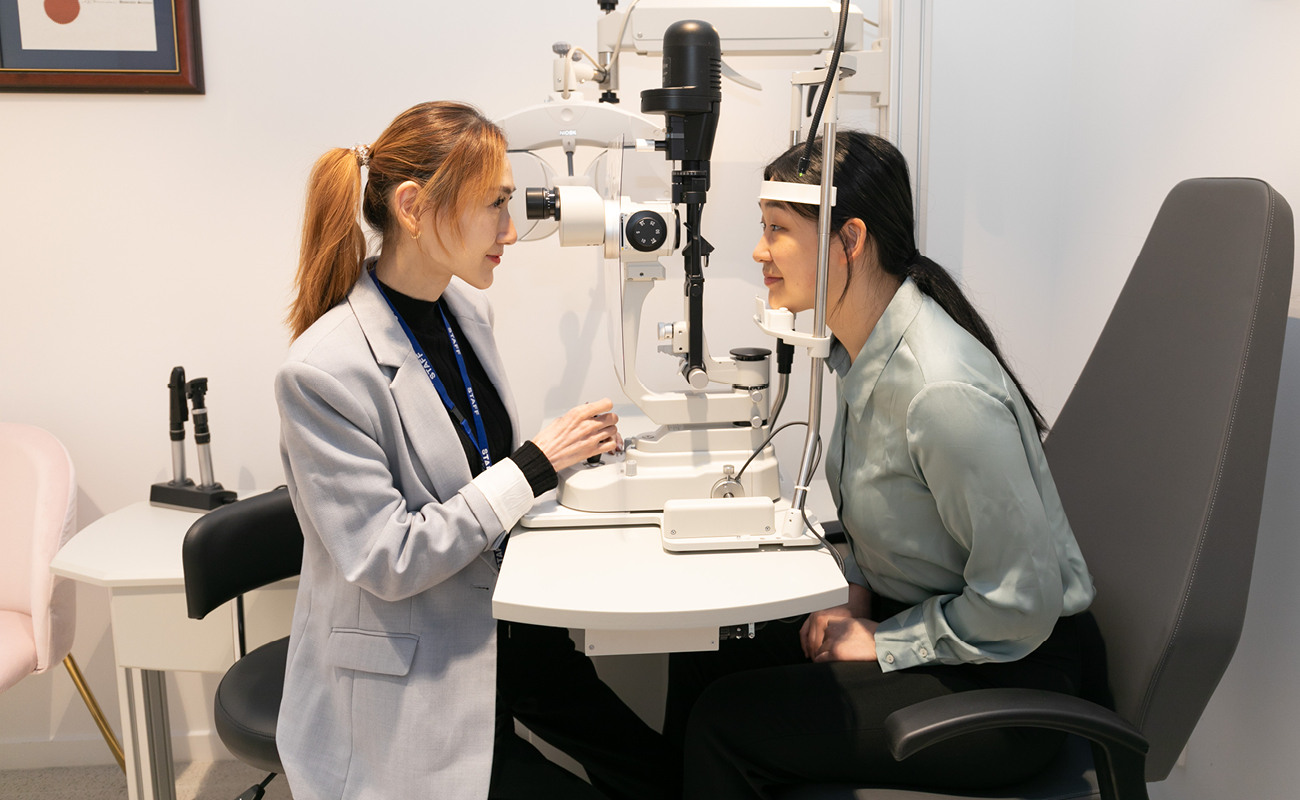Macular Degeneration Care in Southland
Macular degeneration is a significant eye disease that affects many individuals. This eye condition is a leading cause of vision loss for people over 50 years of age, and it impacts more than 200 million people worldwide to perform daily tasks such as reading, driving, or even recognising faces.
Macular degeneration care for Southland individuals should be of quality and accessible. As developing this condition can severely impact one's vision, it is crucial to have proper support and macular degeneration treatment.
What is Macular Degeneration?
Macular degeneration, or age-related macular degeneration, causes damage to the macula, which is responsible for sharp, central vision, resulting in vision deterioration.
There are two primary types of macular degeneration. The first, known as dry macular degeneration, is the most prevalent form and entails the gradual thinning of the macula. The second type, wet macular degeneration, while less common, is more severe and involves the leakage of fluid or blood from blood vessels beneath the macula.
The progression of the disease is attributed to prevalent causes and risk factors, including:
Age: Macular degeneration is more common in people over 50, and the risk increases.
Family history and genetics: The disease can be hereditary, and several genes have been linked to the condition.
Smoking: Smoking cigarettes or tobacco greatly increases the risk of macular degeneration.
Obesity: Research indicates that obesity may increase the chance of early macular degeneration or progress to the advanced stage.
Diabetes: People with diabetes are at a higher risk of developing macular degeneration.
Head injuries: Head injuries can lead to macular degeneration.
Infections: Certain infections can cause macular degeneration.
Diet: An unhealthy diet that lacks required nutrients may contribute to the development of macular degeneration.
High blood pressure: High blood pressure or hypertension is a risk factor for macular degeneration.
Saturated fat intake: Consuming a diet high in saturated fat may increase the risk of macular degeneration.
The prevalence of AMD is increasing due to an ageing population, with an estimated almost 300 million projected to have the condition by 2040.
Eye Concepts Southland Eye Care Centre
Eye Concepts Southland Centre is dedicated to providing the best eye care solution that suits your expectations and lifestyle requirements. We welcome patients of all ages with family-friendly practices.
Eye Concepts Southland professionals are highly trained and experienced in diagnosing and managing macular degeneration, including wet macular degeneration and dry macular degeneration. They use advanced diagnostic technology to monitor changes in eye health and provide personalised treatment plans according to each individual's needs. Our staff can help individuals with advanced macular degeneration improve their quality of life through various visual aids and devices.
Our services include regular eye exams, essential for early detection of eye conditions, including macular degeneration. Doing a macular degeneration assessment with us will allow your optometrist to discuss the macular degeneration causes that are unique to your circumstances. From dietary changes to quitting smoking, they will recommend lifestyle modifications that help you retain your eyesight for longer.
Finally, you will have the opportunity to acquire vision-enhancing aides, such as glasses and contact lenses. In the long term, this leads to better eye health.
Protective Eye Gear for Macular Degeneration
Protective eye gear is crucial in macular degeneration care to reduce the risk of further eye damage and even, as the disease progresses, going completely blind. The importance of eye protection includes:
Blocking ultraviolet (UV) rays: UV radiation from the sun and other artificial sources can cause damage to the eyes and is a known risk factor for macular degeneration. Sunglasses that block 100% of both UVA and UVB radiation are essential for safeguarding the eyelids, cornea, lens, and retina.
Reducing glare: People with macular conditions may experience heightened sensitivity to glare and bright light, which can further impair vision. Anti-reflective coatings on eyeglasses can help reduce glare, while polarised lenses can lower the amount of light that comes in through the glasses, improving clarity and visibility.
Protecting against wind and dust: Wearing a wide-brimmed hat and sunglasses helps protect your eyes from wind and dust, which can cause further damage to the eyes.
Encouraging regular eye tests: Regular eye exams are essential for detecting macular degeneration and other eye conditions in their early stages.
To ensure proper eye protection, it is recommended to:
Wear sunglasses year-round with UV protection.
Choose shades that block 99 to 100% UVA and UVB light.
Wear a hat to protect your face and the top of your head.
Use a broad-spectrum sunscreen with an SPF30 or higher to protect delicate skin around the eyes.
Schedule annual eye exams, especially if you are in your fifties or older.
Age-Related Macular Degeneration Treatment Options and Interventions
While there is no cure for macular degeneration, treatment options and interventions are available for age related macular degeneration.
Intravitreal Injections
Intravitreal injections, particularly those containing anti-VEGF medications, are commonly used to manage wet macular degeneration. These injections involve administering medications directly into the eye's vitreous cavity.
The medications delivered through these injections, such as anti-VEGF drugs and steroids, help reduce fluid leakage associated with these disorders.
These injections have been shown to prevent worsening of vision in nearly 95% of patients and improve vision significantly in up to 40% of cases. While intravitreal injections are generally safe, potential complications can include infection, retinal detachment, cataracts, and transient raised intraocular pressure.
Low Vision Rehabilitation
Low-vision rehabilitation programs significantly improve the quality of life for people with low vision, including those with AMD.
These programs can help individuals with AMD overcome the challenges associated with vision loss, enabling them to participate fully in daily activities and improve emotional well-being. Low vision rehabilitation may involve using various devices, such as prescription glasses, magnification devices, and assistive technology, as well as techniques to help individuals perform daily activities with their remaining vision.
Supportive Therapies
Dietary supplements and lifestyle modifications can support macular degeneration care. Subsequent studies suggest that higher dosages of zeaxanthin and vitamin D, vitamin B12, and omega-3 fatty acids supplements may reduce the progression of the disease.
Lifestyle modifications, like avoiding smoking, may also support macular degeneration care. However, it's important to note that while these complementary therapies may have potential benefits, they should be used in conjunction with standard treatments and under healthcare professionals' guidance.
Patient Resources and Support
In addition to comprehensive treatment and intervention, numerous resources and support networks are available for individuals and their families navigating macular degeneration challenges. These include:
Patient Education
Patients and their caregivers can access various educational materials to help them better understand macular degeneration and how it affects their vision. These materials may include brochures, fact sheets, videos, and online resources, often provided by healthcare professionals and local support groups.
Support Groups
Support groups offer a welcoming space for individuals with macular degeneration to connect with others facing similar challenges. They provide an opportunity to share experiences, gain emotional support, and learn from one another's coping strategies. Several support groups exist for individuals with vision loss.
Conclusion
Wet macular degeneration and dry macular degeneration care should involve a comprehensive approach that includes regular eye exams, various treatment options, low vision rehabilitation, and support services. Raising awareness and promoting early intervention can improve the Southland community's quality of life for individuals with macular degeneration. Book an appointment online and have your eyes tested! Individuals with macular degeneration can lead fulfilling lives with the right care and support.



